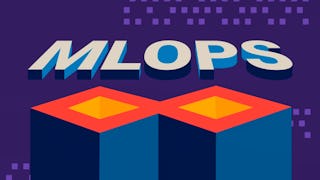- Browse
- Python
Python Courses
Python courses can help you learn programming fundamentals, data analysis, web development, and automation techniques. You can build skills in writing clean code, debugging, and using libraries like Pandas and NumPy for data manipulation. Many courses also introduce frameworks such as Flask and Django for web applications, as well as tools like Jupyter Notebooks for interactive coding and visualization. These skills and tools are essential for tackling projects in data science, software development, and artificial intelligence.
Popular Python Courses and Certifications
 Status: Free TrialFree TrialM
Status: Free TrialFree TrialMMicrosoft
Skills you'll gain: Web Scraping, Data Structures, Git (Version Control System), Generative AI, Version Control, Matplotlib, Devops Tools, Plotly, DevOps, Agile Methodology, Web Development, Data Ethics, Flask (Web Framework), Data Visualization, Scripting, GitHub, Debugging, Data Analysis, Automation, Cloud Computing
4.4·Rating, 4.4 out of 5 stars622 reviewsBeginner · Professional Certificate · 3 - 6 Months
 Status: Free TrialFree TrialStatus: AI skillsAI skills
Status: Free TrialFree TrialStatus: AI skillsAI skillsSkills you'll gain: User Story, Cloud Deployment, CI/CD, Software Development Life Cycle, Open Web Application Security Project (OWASP), Continuous Integration, Istio, Linux Commands, Software Architecture, Cloud Computing Architecture, Application Deployment, Test Driven Development (TDD), Kubernetes, Restful API, Git (Version Control System), DevOps, Grafana, Software Engineering, Data Import/Export, Application Development
Build toward a degree
4.6·Rating, 4.6 out of 5 stars65K reviewsBeginner · Professional Certificate · 3 - 6 Months
 Status: Free TrialFree TrialD
Status: Free TrialFree TrialDDuke University
Skills you'll gain: MLOps (Machine Learning Operations), Model Deployment, Cloud Deployment, Pandas (Python Package), AWS SageMaker, NumPy, Microsoft Azure, Hugging Face, Responsible AI, Data Manipulation, Exploratory Data Analysis, Containerization, DevOps, Cloud Computing, Python Programming, Machine Learning, GitHub, Big Data, Data Management, Data Analysis
4.2·Rating, 4.2 out of 5 stars582 reviewsAdvanced · Specialization · 3 - 6 Months
 Status: Free TrialFree TrialS
Status: Free TrialFree TrialSSnowflake
Skills you'll gain: Data Engineering, Data Pipelines, Database Management, Data Manipulation, Databases, Data Transformation, Extract, Transform, Load, Data Warehousing, Change Control, DevOps, SQL, Cloud Development, Data Integration, CI/CD, Application Development, Artificial Intelligence and Machine Learning (AI/ML), Role-Based Access Control (RBAC), Software Development Tools, Stored Procedure, Data Analysis
4.8·Rating, 4.8 out of 5 stars321 reviewsBeginner · Professional Certificate · 1 - 3 Months
 Status: Free TrialFree Trial
Status: Free TrialFree TrialSkills you'll gain: User Story, Cloud Deployment, CI/CD, Open Web Application Security Project (OWASP), Continuous Integration, Istio, Application Deployment, Test Driven Development (TDD), Kubernetes, Gherkin (Scripting Language), Jenkins, Agile Software Development, Scrum (Software Development), Code Coverage, OpenShift, DevOps, Secure Coding, Grafana, System Monitoring, Agile Methodology
Build toward a degree
4.7·Rating, 4.7 out of 5 stars7.9K reviewsIntermediate · Professional Certificate · 3 - 6 Months
 Status: Free TrialFree TrialM
Status: Free TrialFree TrialMMicrosoft
Skills you'll gain: Devops Tools, DevOps, Agile Methodology, Application Deployment, Docker (Software), Agile Project Management, Project Management, Technical Communication, Needs Assessment, Prometheus (Software), Business Requirements, Jira (Software), Python Programming, Natural Language Processing, Collaboration, Communication, Professional Networking, Interviewing Skills
4.6·Rating, 4.6 out of 5 stars27 reviewsBeginner · Course · 1 - 3 Months
What brings you to Coursera today?
 Status: NewNewStatus: Free TrialFree Trial
Status: NewNewStatus: Free TrialFree TrialSkills you'll gain: LangChain, LLM Application, Prompt Engineering, API Design, MLOps (Machine Learning Operations), Large Language Modeling, Performance Tuning, Microservices, Application Deployment, Kubernetes, Scalability, Site Reliability Engineering, DevOps, CI/CD, Docker (Software), Python Programming, Containerization, System Monitoring, Cloud Platforms, Security Controls
Intermediate · Specialization · 3 - 6 Months
 Status: NewNewStatus: Free TrialFree TrialC
Status: NewNewStatus: Free TrialFree TrialCCoursera
Skills you'll gain: Apache Airflow, Docker (Software), Containerization, CI/CD, Data Pipelines, Ansible, Continuous Deployment, Infrastructure as Code (IaC), Continuous Integration, Workflow Management, DevOps, Configuration Management, Automation, Git (Version Control System), Python Programming, Database Management, SQL, Performance Tuning, Debugging, Root Cause Analysis
Intermediate · Specialization · 3 - 6 Months
 Status: Free TrialFree TrialK
Status: Free TrialFree TrialKKodeKloud
Skills you'll gain: Jenkins, Terraform, Infrastructure as Code (IaC), Ansible, Package and Software Management, Kubernetes, Linux Administration, Continuous Integration, CI/CD, Version Control, Linux, Docker (Software), YAML, Application Development, Linux Commands, Microservices, Devops Tools, Git (Version Control System), Data Structures, DevOps
4.6·Rating, 4.6 out of 5 stars245 reviewsBeginner · Specialization · 3 - 6 Months
 Status: NewNewStatus: Free TrialFree Trial
Status: NewNewStatus: Free TrialFree TrialSkills you'll gain: Threat Modeling, AI Security, DevSecOps, Security Testing, Continuous Monitoring, CI/CD, Threat Detection, Secure Coding, MITRE ATT&CK Framework, DevOps, System Monitoring, Application Security, Continuous Integration, MLOps (Machine Learning Operations), Scripting, Unit Testing, Test Case, Prompt Engineering, Integration Testing
Intermediate · Course · 1 - 4 Weeks
 Status: NewNewStatus: Free TrialFree Trial
Status: NewNewStatus: Free TrialFree TrialSkills you'll gain: Apache Airflow, Service Level Agreement, Data Pipelines, Workflow Management, Scalability, MLOps (Machine Learning Operations), DevOps, Extract, Transform, Load, System Monitoring, Incident Response
Beginner · Course · 1 - 4 Weeks
 Status: Free TrialFree TrialL
Status: Free TrialFree TrialLLearnQuest
Skills you'll gain: Containerization, File I/O, Package and Software Management, Unified Modeling Language, Matplotlib, Software Testing, Docker (Software), Development Environment, Unit Testing, Test Automation, Continuous Integration, Data Manipulation, Pandas (Python Package), Scripting, Data Modeling, DevOps, Programming Principles, Python Programming, Data Structures, Computer Programming
4·Rating, 4 out of 5 stars209 reviewsBeginner · Specialization · 3 - 6 Months
In summary, here are 10 of our most popular python courses
- Microsoft Python Development: Microsoft
- IBM DevOps and Software Engineering: IBM
- MLOps | Machine Learning Operations: Duke University
- Snowflake Data Engineering: Snowflake
- IBM Applied DevOps Engineering: IBM
- Project Development in Python: Microsoft
- Build Next-Gen LLM Apps with LangChain & LangGraph: Coursera
- DataOps: Automation & Reliability: Coursera
- DevOps Mastery: KodeKloud
- Secure AI: Threat Model & Test Endpoints: Coursera
Frequently Asked Questions about Python
Python is a versatile programming language known for its readability and simplicity. It is widely used in various fields, including web development, data analysis, artificial intelligence, and scientific computing. Its importance lies in its ability to empower individuals and organizations to automate tasks, analyze data, and create applications efficiently. As technology continues to evolve, Python remains a crucial skill for anyone looking to thrive in the digital landscape.
With Python skills, you can pursue various job roles, including software developer, data analyst, data scientist, machine learning engineer, and web developer. These positions are in high demand across industries, as companies seek professionals who can leverage Python for data-driven decision-making and automation. Additionally, roles in cybersecurity and artificial intelligence are increasingly looking for candidates with Python expertise.
To learn Python effectively, you should focus on several key skills. Start with the basics of programming, including syntax, data types, and control structures. Understanding libraries and frameworks, such as Pandas for data manipulation and Flask for web development, is also essential. Additionally, familiarity with version control systems like Git and knowledge of databases can enhance your Python proficiency.
There are many excellent online Python courses available. For beginners, the BiteSize Python for Absolute Beginners Specialization offers a gentle introduction. For those looking to advance their skills, the AI and Machine Learning Essentials with Python Specialization provides a solid foundation in applying Python to AI. Additionally, the Data Analysis with Python Specialization is great for those interested in data science.
Yes. You can start learning python on Coursera for free in two ways:
- Preview the first module of many python courses at no cost. This includes video lessons, readings, graded assignments, and Coursera Coach (where available).
- Start a 7-day free trial for Specializations or Coursera Plus. This gives you full access to all course content across eligible programs within the timeframe of your trial.
If you want to keep learning, earn a certificate in python, or unlock full course access after the preview or trial, you can upgrade or apply for financial aid.
To learn Python, begin by choosing a structured course or specialization that matches your skill level. Dedicate time to practice coding regularly, as hands-on experience is crucial. Utilize online resources, such as forums and coding communities, to seek help and collaborate with others. Finally, work on personal projects to apply what you've learned and reinforce your skills.
Typical topics covered in Python courses include basic syntax, data structures (like lists and dictionaries), control flow (if statements, loops), functions, and modules. Advanced courses may explore object-oriented programming, web development frameworks, data analysis libraries, and machine learning techniques. This comprehensive curriculum ensures you gain a well-rounded understanding of Python.
For training and upskilling employees, the Google IT Automation with Python Professional Certificate is an excellent choice, as it focuses on practical skills for IT professionals. Additionally, the Microsoft Python Development Professional Certificate provides a robust foundation for those looking to enhance their programming capabilities in a corporate environment.










